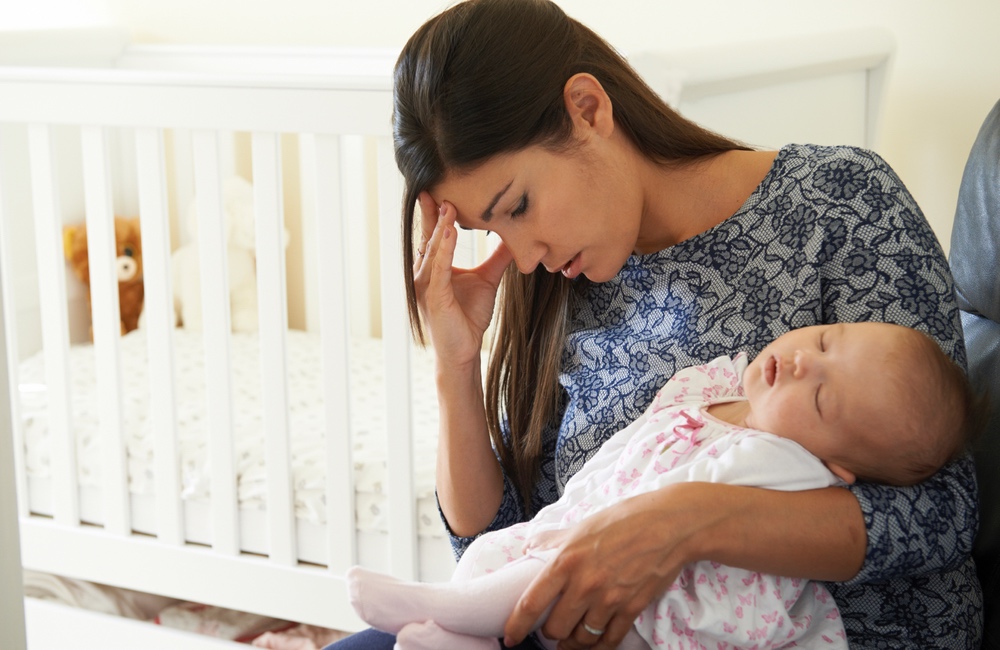Postpartum depression (PPD) affects one in five new mothers, but only about ten percent of depressed new moms receive treatment.
There are a number of reasons for this. New mothers experiencing postpartum depression, in addition to feeling down, also fear being judged and labeled as bad mothers. It can be hard for them to put a name to what they are feeling, and many lack access to healthcare professionals who have the experience necessary to treat PPD.
Other women who have experienced postpartum depression are a relatively untapped resource when it comes to helping new mothers with PPD, yet they are uniquely qualified, having been there themselves. Researchers from McMaster University in Canada developed a treatment model in which cognitive behavioral therapy (CBT) was provided in groups led by women who previously had postpartum depression. This peer-led model may help more women get the support they need.
Ryan Van Lieshout, lead author, and his team wanted to see to see if their model could bridge the gap between supply and demand. “Given the number of women who have had and recovered from PPD, and given that this treatment is scalable and deliverable online, it has the potential to increase access to treatment for mothers with PPD,” he told TheDoctor.Women who had had PPD served as peer-group leaders. They spent three days learning in the classroom, received expert feedback on their recorded sessions, and watched professional facilitators lead the group once a week.
Women who received CBT from their peers had significantly less anxiety and depression at the end of the nine-week study period. They also had more social support and less anxiety about their babies. Their babies' temperaments were better, too, with infants showing less emotional upset, fussiness and distress. These improvements were maintained for three months.
More than 180 women 18 years old or older who had an infant younger than one year old participated in the study. They lived in Ontario, Canada and were recruited over an 18-month period. Depression, anxiety, mother-infant bonding, social support and infant temperament were measured at the time of enrollment in the study and after nine weeks.
Participants were randomly assigned to receive either the peer-led CBT intervention for nine weeks or treatment as usual, followed by the intervention after nine weeks. For both groups, treatment “as usual” was any treatment participants wanted, including antidepressants. The research team didn't want to prevent any of the women from getting the peer treatment, so those women who started without the peer intervention got it later, Van Lieshout, an associate professor of psychiatry and behavioral neurosciences at McMaster University, explained.
At the start of the study, about 25 percent of the women in each group were taking medication, and the use of healthcare services did not differ between each group. “This led us to conclude that improvements seen were the result of the CBT program delivered by peers,” Van Lieshout said.
Mothers who had had PPD and served as peer-group leaders spent three days learning in the classroom. They also received ongoing training: They watched experienced, professional facilitators lead the group once a week for nine weeks; and when they led the group, the sessions were recorded and they got feedback from an expert.
Cost is potentially one of the biggest barriers to making this treatment available to more women, according to Van Lieshout. The supervision from experts that group leaders received after each session can be expensive, so the researchers next plan to see if peer therapists can be trained to both lead the group and provide feedback to one another, so the program doesn't require extensive expert involvement.
The study is published in Acta Psychiatrica Scandinavica.





